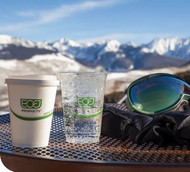The Reign of Recycled Misinformation
Posted by Eco-Products on Oct 14th 2015
 On October 3, the New York Times published an opinion piece entitled “The Reign of Recycling.” It was extremely critical of recycling, questioning its environmental and economic benefits. Eco-Products believes this piece was misleading, one-sided, and deeply flawed. Our full response to the article may be found here. It includes links to supporting documentation we did not include in this summary. If you’re in a rush, here are the top five things about the article that bugged us most:
On October 3, the New York Times published an opinion piece entitled “The Reign of Recycling.” It was extremely critical of recycling, questioning its environmental and economic benefits. Eco-Products believes this piece was misleading, one-sided, and deeply flawed. Our full response to the article may be found here. It includes links to supporting documentation we did not include in this summary. If you’re in a rush, here are the top five things about the article that bugged us most:
- Implying sending food and other organics to landfills isn’t a problem because methane gas is captured. Large landfills must capture gasses emitting from rotting organics, but on average they capture 75%. This is far from perfect. Nearly two decades after stricter laws went into effect, methane from landfills is the third largest source of human-caused methane in the U.S. With climate change, we need all hands on deck.
Rather than send food scraps to landfills, we believe it is far better to compost it to create soil amendment. Studies show compost increases soil health, supports more robust plant growth, decreases the need for fertilizer and irrigation, and reduces run-off. We need healthy soil for agriculture, landscaping, flood control, and drought management. Does it make sense to send food scraps to the landfill to create greenhouse gases, instead of use it for such worthy causes? - Claiming it’s more expensive to recycle material than to landfill it. This is often true, but only because cities often structure their contracts to make landfilling the most profitable option. Can’t we reconfigure contracting so that interests are aligned around landfill diversion?
- Citing the closure of a large composting facility as evidence of dire straits. Holding up one example of a mismanaged facility is not fair in light of the fact that there are hundreds of composting facilities effectively accepting and processing food scraps. We can point to host of very successful food composting operations.
- Using life-cycle analysis to present a preferred conclusion. The author claimed the greenhouse gas benefits of recycling plastic are negated if the plastic is rinsed with heated water. LCAs can be manipulated to support any conclusion. How much water? Heated to what temperature? If you run the tap to heat water to rinse out a water bottle before throwing it in the blue bin, stop it!
- Ignoring the fact we live on a planet with finite resources, a growing population, and an expanding middle class. We need to stop treating used material as “waste” and start treating it as inputs to another system.
We welcome debates on the merits of solutions to environmental challenges. This is necessary, given there are no silver bullets for today’s problems. Unfortunately the New York Times piece did not productively contribute to advancing the conversation. If you have any questions, feel free to contact our Sustainability Maven at sustainabilitymaven@ecoproducts.com.

